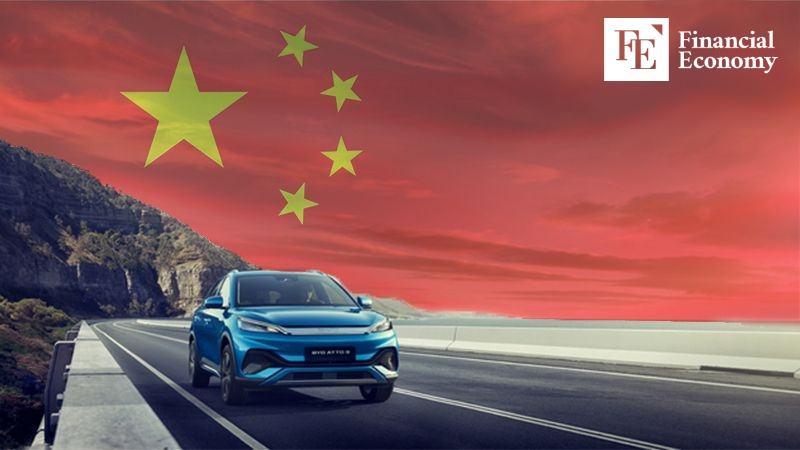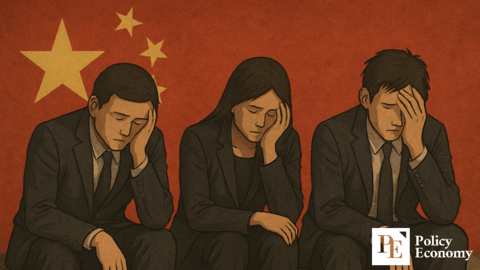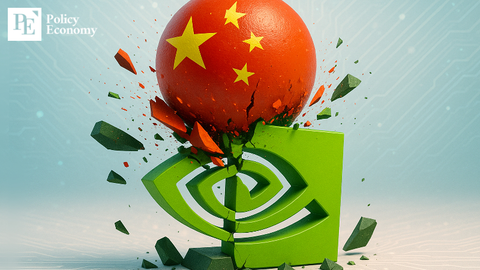China’s Dominance in EV Infrastructure Draws Investment
Input
Modified
The Path Companies Choose Between U.S. and China Shifting Strategy Toward 'Domestic Market Investment' Rather Than Withdrawal Industrial Rebound Beyond Automotive Sector Remains Limited

Amid escalating U.S.-China trade tensions, several Japanese companies are drawing attention by expanding their investments in China. These companies cite efforts to capture the Chinese market as the main reason for their increased investments, redefining China not as a supply base but as a consumer market. However, this trend remains largely confined to certain sectors like the automotive industry, making a large-scale return of foreign capital in the short term unlikely.
China Opens Its Doors Wider to Foreign Investment
According to reports from China Central Television and other local media on April 25, Toyota announced a major investment plan in China, committing 14.6 billion yuan (approximately $2 billion) to build a new Lexus EV factory in Shanghai. Toyota has established a wholly-owned subsidiary, Lexus New Energy Co., and plans to start construction this June in the Jinshan High-Tech Industrial Development Zone.
The factory, scheduled to begin operations in 2027, will produce Lexus-brand electric vehicles and batteries, with an annual capacity of up to 100,000 units. Toyota has secured 1.12 million square meters of land for the project and expects to create over 1,000 jobs. Once completed, this will be the second wholly foreign-owned automotive plant in Shanghai, following Tesla’s Gigafactory.
Meanwhile, Honda has also ramped up its EV production capacity in China, recently launching specialized factories in Guangzhou and Wuhan, aiming for an annual output of 240,000 EVs. Honda plans to introduce 10 new EV models to the Chinese market by 2027 through its joint venture with Dongfeng Motor Group.
Japanese automakers are accelerating investments in China to regain their footing after facing declining market shares amid the country’s rapid EV transition. Despite previous restructuring efforts, including Nissan’s closure of its Changzhou plant in 2023, companies recognize that abandoning the world’s largest auto market is not an option.
Moreover, China's highly developed EV ecosystem—ranging from battery manufacturing to motor and charging infrastructure—offers a more efficient production environment compared to building facilities elsewhere. Professor Park Chul-wan of Seojeong University noted, “Toyota’s new EV plant in China is likely intended not only for the domestic market but also to supply Europe, where manufacturing bases are relatively underdeveloped.”
The Chinese government is actively courting foreign investment. On April 6, Chinese Vice Minister of Commerce Ling Ji emphasized Beijing’s commitment to maintaining an open-door policy during a roundtable meeting with multinational corporations, stating that “China’s opening to the outside world will only grow wider.”
Ling reiterated similar assurances on national television, highlighting China’s unwavering support for foreign investment. These remarks come amid continued concerns over geopolitical risks and economic slowdowns that have prompted many foreign firms to pull out of China.
The Broader 'China Exodus' Continues
Just a few years ago, foreign companies were hastily retreating from China. The post-pandemic economic downturn, rising anti-foreign sentiment, and supply chain instability accelerated the trend, with many shifting production to Southeast Asia or India.
According to financial data provider Dealogic, seven of the world’s ten largest buyout funds made no investments in China last year. Warburg Pincus, once an active investor in China, made no deals in 2023, a sharp contrast to the 18 transactions it completed there in 2017.
U.S.-China tensions have only exacerbated this exodus. In 2022, former President Joe Biden signed an executive order restricting U.S. investment in China’s quantum computing, semiconductor, and AI sectors. Economist Nick Marro of the Economist Intelligence Unit (EIU) commented, “China has increasingly become a market where players leave but few enter, driven by rising policy uncertainty and geopolitical risks.”

U.S.-China Tensions Remain a Persistent Barrier
However, the automotive sector remains an exception. China's unrivaled EV supply chain—spanning high-performance batteries, rare earth materials, and core component technologies—continues to anchor global automakers. China’s extension of EV subsidies and aggressive infrastructure expansion further solidify its importance in the global automotive landscape, making it a market few can afford to exit.
Nevertheless, experts caution against seeing recent Japanese investments as a broader trend. The intensifying U.S.-China trade war, particularly Trump's second-term efforts to tighten export controls and impose higher tariffs on Chinese goods, is making foreign companies increasingly wary of China’s growing political risks.
High tariffs and export restrictions mean that while China remains an efficient manufacturing hub, exporting products made there has become more costly and complicated. Unless foreign firms focus on a "local production for local consumption" strategy, like Toyota, expanding in China will remain fraught with challenges.
In short, while EV investment flows into China persist, especially from automakers, the broader trend of foreign capital withdrawal shows no sign of reversal.





















